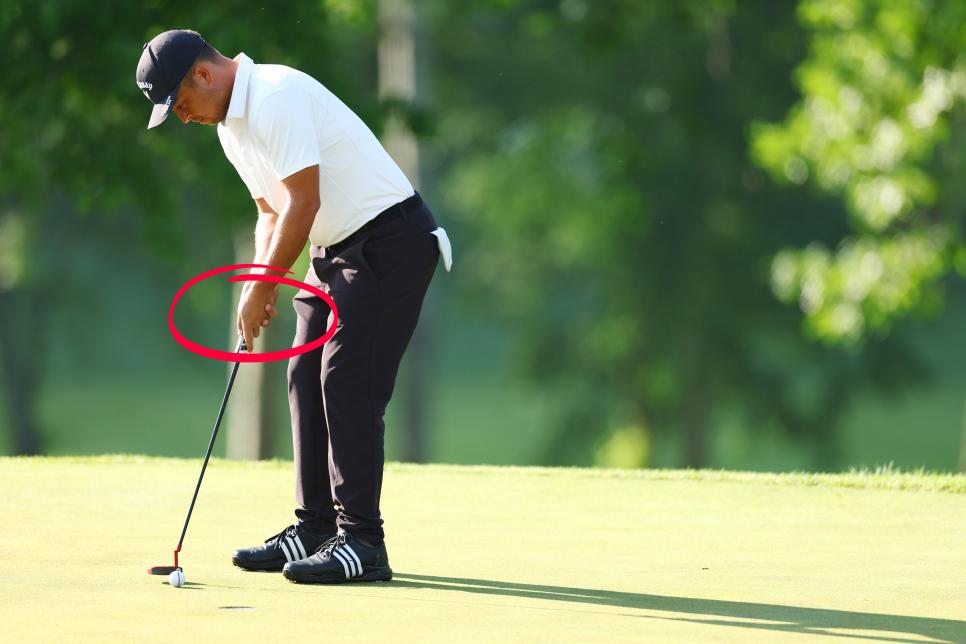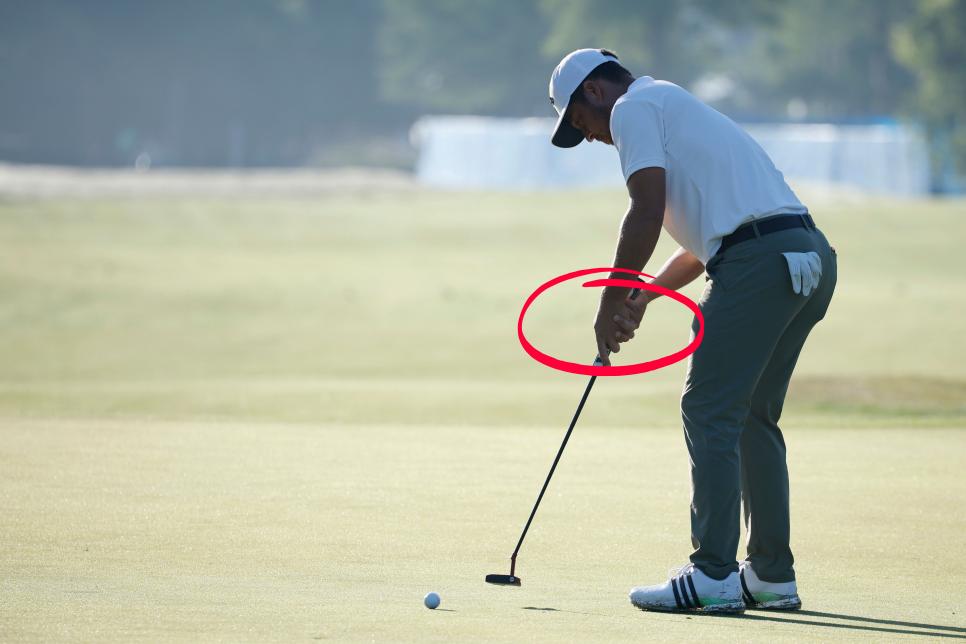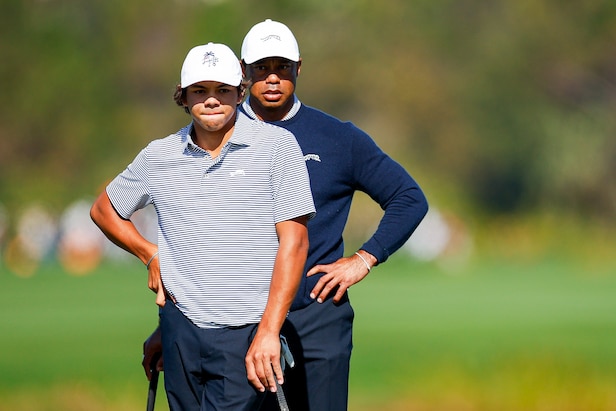PGA Championship 2024: Why Xander Schauffele’s ‘trigger-less’ putting grip is genius – Australian Golf Digest

- by Admin
- May 16, 2024

To get out to a healthy first-round lead early on Thursday at a major championship, as Xander Schauffele did at Valhalla, requires nearly every part of your game to be working. Such was the case for Schauffele during his record-setting bogey-free 62, but no facet was sharper than his putting.
As of midday Thursday, Schauffele was leading the field in Strokes Gained/putting, gaining over four shots on the field and needing just 24 putts.
MORE: Phil Mickelson putting with goggles on ahead of a major might be the most Phil Mickelson move ever
He rolled it well using the same cross-handed grip that he has used for years, but unlike most players using the grip, Schauffele adds a unique twist.
Players often choose to putt cross-handed, or left-hand-low for righties, because it helps square up the forearms and shoulders, which helps the stroke move on an inside-to-inside arc. With a traditional grip, your shoulders have a tendency to sneak open, leading to an out-to-in path and inconsistent strikes.
It’s one of the reasons that when we ran a study of every player on the PGA Tour last year, the cross-handed putters fared better than those with any other grip.
As Best in State teacher and putting coach Bill Smittle describes:
“Many amateur golfers tend to swing over-the-top on their full swing, which can show up in their putting stroke … they move the putter severely out-to-in, with their shoulders pointing left at address. For those golfers, a lead-hand low grip can help bring their shoulders into better alignment, which can improve their start line.”

Maddie Meyer/PGA of America
But Schauffele’s variation adds an extra layer of benefit. Look closely, and notice how you can see the first two fingers on his right hand. When most golfers switch to left-hand-low, they will overlap their left hand over their right, like you see Jordan Spieth doing here.

Andy Lyons
Notice how with Spieth, you can’t see any of his right fingers. It’s a tiny detail, but Schauffele’s variation can help stabilize the putter face, especially for those struggling with the yips.
When you have the yips, or what the Mayo Clinic describes as involuntarily spasms in your hands and wrists, it often shows up in your trigger fingers of your right hand—typically the index and middle.
With a conventional grip, or even the typical cross-handed grip, those fingers are both touching the club. When they shake at impact, the putter face can be easily opened or closed.
Yet with Schauffele’s grip, he actually places those two trigger fingers over and around his left hand, so they are not even touching the club. This isn’t to suggest that Schauffele has battled the yips, considering he is routinely one of the best putters on tour, but his unique grip is worth trying for all of us who struggle with an overactive right hand.

Chris Graythen
In fact, last summer, I tried this grip and found it remarkably stable. During pressure situations in which I have to make a short putt, my trigger fingers often get too active, but with this grip, it doesn’t matter because they aren’t on the club.
With Schauffele’s trigger-less grip, I found that you can yip all you want, but if you keep those right two fingers off the club, you’ll still hit a solid putt. So, if you fight shaky fingers in your right hand, consider trying Schauffele’s grip—it might just add the stability you need under pressure.
MORE GOLF DIGEST PGA CHAMPIONSHIP COVERAGE
PGA Championship 101: Answering all your frequently asked questions
How to watch the 2024 PGA Championship
Power Rankings: Every player in the PGA field, ranked
The 13 best bets to win at Valhalla
Tee times for Round 1 and Round 2
Secrets to Scottie’s Success: Watching 1,353 shots during Scheffler’s impressive run
Tiger’s mysterious Valhalla bounce: Investigating one of golf’s biggest conspiracy theories
Can Rory McIlroy find himself again in the march toward joining golf’s all-time greats?
Micheal Block: ‘Year of Blockie’ and what happens when your 15 minutes of fame are up
‘The Hole At’: Valhalla’s 18th was built to always produce drama
An ode to Valhalla and the thing it’s always delivered
The 5 holes that will decide the PGA Championship
This article was originally published on golfdigest.com
The Latest News
-
December 23, 2024This quiet Canadian will make you love YouTube golf again – Australian Golf Digest
-
December 23, 2024Guide Helps Australian Workers Expose Tech Wrongdoings
-
December 23, 2024PPHG achieves GSTC multi-site certification for all its Australian properties – Travel And Tour World
-
December 23, 2024Championship three-peat reward for ‘clinical’ Aussies | cricket.com.au
-
December 23, 2024Australian tennis star Purcell takes on voluntary provisional suspension for breaking anti-doping rules





